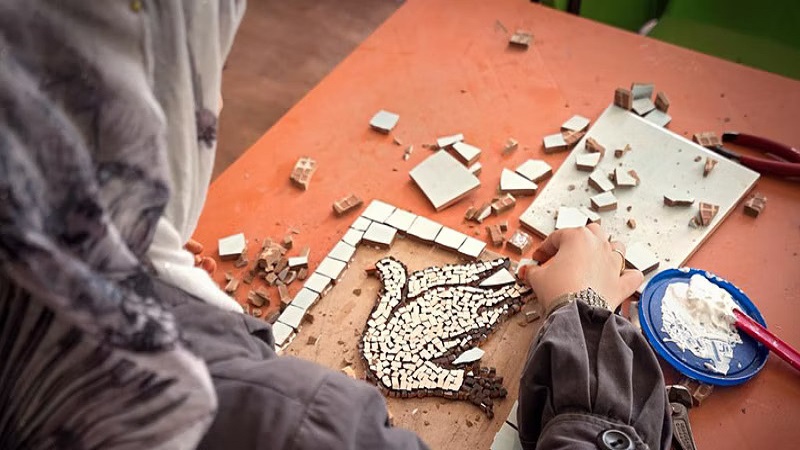Syrian refugees in regional and global context
Tue, 21 Jun 2022 09:30 - 19:30 British Summer Time (UTC+1)
Register here.
A one-day conference on how best to protect and integrate Syrian refugees.
About this event
After over a decade of war, crisis and authoritarianism, Syria continues to have one of the world’s largest refugee populations. With little prospect in sight for a return to stable conditions inside the country, its refugee populations face a range of on-going hardships and challenges.
A majority of Syria’s refugee population remain in the Middle East, notably Lebanon, Turkey and Jordan – all countries facing accelerating socioeconomic problems of their own. Furthermore, a series of intensifying global shocks are now unfolding, including the Ukraine-Russia War and the starkly different response to its refugee crisis in European states.
Against this background this one-day conference will consider the lessons, legacies and current trajectories facing Syrian refugees, and the links (in terms of geopolitical alignments, civil society activity and migration governance) to the Russian war on Ukraine.
‘Responsible Deal – where and how to best protect and integrate Syrian refugees’ is a project led by the LSE and funded by Riksbankens Jubileumsfond.
Timetable
10.00 – 10.30: Opening remarks
Vicky Tennant (Deputy Representative, United Nations High Commissioner for Refugees)
Chair: Rim Turkmani (Director LSE Syria Conflict Research Programme)
10.30 – 12.00: The refugee challenge in Lebanon, Turkey and Jordan
Joseph Bahout (Director, IFIPPIA American University Beirut)
Dominik Hangartner (Professor of Public Policy, ETH Zurich)
Give the gift of hope
We practice what we preach:
accurate, fearless journalism. But we can't do it alone.
- On the ground in Gaza, Syria, Israel, Egypt, Pakistan, and more
- Our program trained more than 100 journalists
- Calling out fake news and reporting real facts
- On the ground in Gaza, Syria, Israel, Egypt, Pakistan, and more
- Our program trained more than 100 journalists
- Calling out fake news and reporting real facts
Join us.
Support The Media Line. Save democracy.


Mazen Gharibah (Associate researcher, LSE IDEAS)
Rebecca Bryant (Professor of Cultural Anthropology, Utrecht University)
Chair: Rim Turkmani (Director LSE Syria Conflict Research Programme) In the context of continued global shocks and crises, from the on-going COVID-19 pandemic to the Ukraine-Russia War and the associated steep rises in food and energy prices across the world, this panel will draw together evidence, analyses and perspectives on the on-going refugee challenge in Lebanon, Turkey and Jordan. The range of issues that to be addressed may include geopolitical ramifications, as well as the relationship to the on-going Syrian conflict, the perspectives of the refugee population, experiences of integration and discrimination, and how the ‘migration question’ impacts domestic politics.
12.00 – 12.15: Break
12.15 – 13.15: Keynote speech
The Impact of the “Syrian Refugee Crisis” on the European Union Asylum Policy
Sarah Leonard (Professor of International Security, University of the West England)
The lecture will critically consider how the EU and its Member States have attempted to address the so-called ‘refugee crisis’ of 2015-2016. It will examine in particular the influence that security concerns, including linkages made between asylum and terrorism, have had on the EU’s asylum policy. It will also assess the extent to which the events of 2015-2016 have made a lasting impact on the EU asylum policy, notably in the light of the EU’s response to the current ‘Ukrainian refugee crisis’.
Chair: Mary Kaldor (Emeritus Professor of Global Governance, LSE)
13.15 – 14.15: Break
14.15 – 15.45: The Syrian refugee ‘crisis’ and its lessons: past, present and future trajectories
Eleonore Koffman (Professor of Social Policy, Middlesex University, via video)
Ala’ Alrababa’h (Postdoctoral Fellow, ETH Zurich)
Maissam Nimer (Assistant Professor, Istanbul University)
Alex Tyler (Senior Liaison Adviser, UNHCR Regional Bureau for the Middle East and North Africa)
Yara Mourad (Deputy Director, IFIPPIA American University Beirut)
Chair: Luke Cooper (Senior Research Fellow, LSE IDEAS)
Reflecting on the on-going global challenges of people movement and humanitarian protection, this panel will bring together presentations on the so-called ‘refugee crisis’ and its on-going international ramifications and trajectories. Presentations may include push and pull factors in the aspirations of Syrian refugees, the barriers to voluntary return and the perspectives of Syrians on the question of return, the role of the gender and socioeconomic cleavages in the refugee diaspora, and transitional justice.
15.45 – 16.00: Break
16.00 – 17.30: From Syria to Ukraine: security, civil society, human rights and humanitarian protection
Karolina Czerska-Shaw (Assistant Professor, Jagiellonian University)
Tymofii Brik (Head of Sociological Research and Assistant Professor KSE)
Monzer Yazji (co-founder of UOSSM and part of delegation to Ukraine)
Chair: Lucinda Platt (Professor of Social Policy, Head of Department LSE Social Policy)
This panel will consider the interrelationship between the Syrian and Ukrainian cases, the connections of solidarity that have formed across Syrian and Ukrainian civil society, as well as the stark differences in European policy responses. In the context of intensifying global instability, it will reflect on the policy conclusions that should be drawn from both these case studies for security, migration and humanitarianism in the 21st century.
This event will take place online via Zoom. A small number of in-person tickets are available. If you are interested in attending in-person, email ideas.crpevents@lse.ac.uk.

